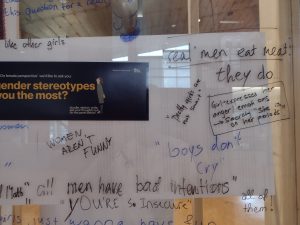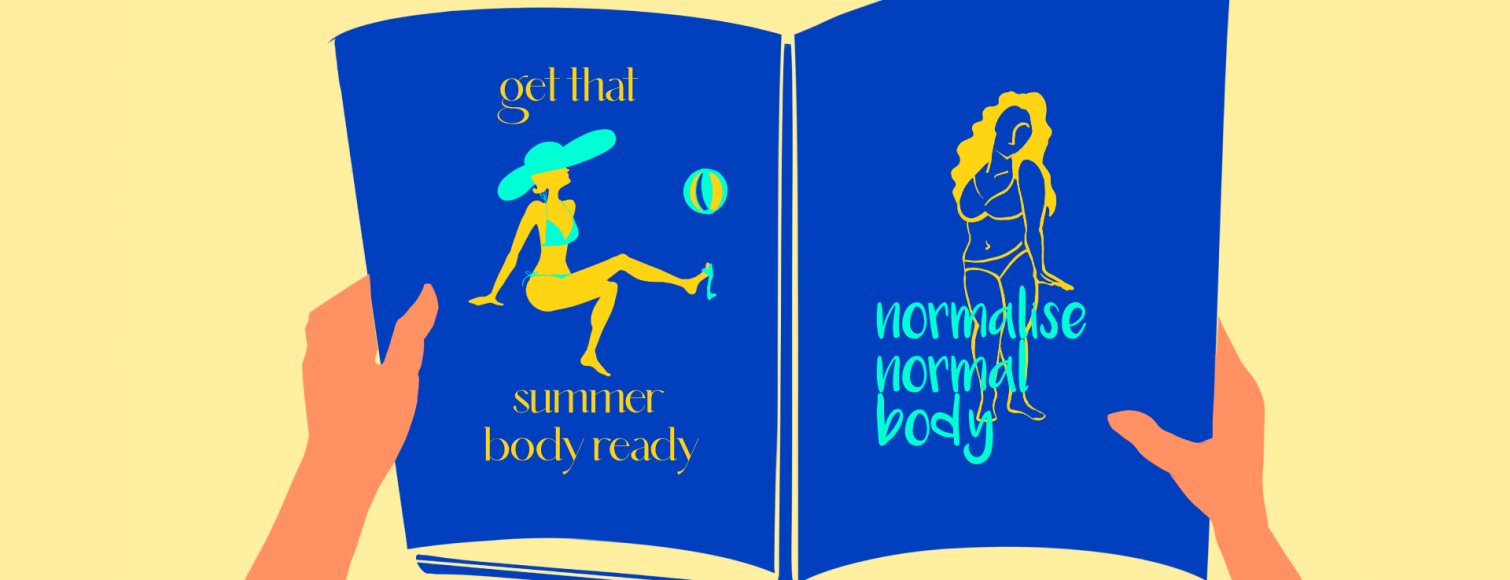Can you imagine a world from a female-dominant perspective? Or is it still too much of a taboo to even consider? This past quarter Sanne and Klaas hosted various events on The Female Perspective. What was our goal at the start? And what did we learn in the end?
Our goal was simple: to explore the politics of gender together with our speakers, authors, anonymous visitors, artists, and the audience. And to imagine a different reality, where women have the power, by looking beyond stereotypes and stigmas. Of course as program makers we know that our goals and expectations don’t always pan out in reality. So what did we actually come across in our lectures and discussions? Here are some of the main lessons as we wrap up the topic.
Duality
First off, this topic hits a nerve. To illustrate this point: the plexiglass comment wall we put up in the Library hall was full to the brim in less than a week. People’s thoughts, feelings, and experiences found an avenue for expression at the different events that we organised. We saw a wide range of perspectives, some very well-informed, but also ignorance, uncertainty, sympathy, relief, enthusiasm, anger, and denial. Some people protested against the use of the term “real” man. Others disagreed with the word “the” in “the female perspective.” Did we use those terms on purpose to elicit discussion? Or did we reveal our own biases?

An interesting duality stands out. At the discussion on “what is a ‘real’ man”, several female visitors said they thought this is a difficult time to be a man, as there are conflicting ideals and values to model yourself after. But during the discussion with the audience about the Female Perspective in the Theater, several male visitors complained that we painted an un-nuanced, non-scientific picture of hate against everything male.
Uncertainty
We noticed a lot of uncertainty on all sides of the gender spectrum about how to behave these days. For example, men who have doubts about being a gentleman and holding the door open for a woman (or for a man). At the same time, some eyes were opened about how patriarchal power structures inhibit women from living freely and equitably. We saw a lot of people who want to let go of the standard, stereotyped gender roles. Men who don’t eat meat, who want to show their emotions, who don’t want to carry the responsibility of being the breadwinner at home. Women who are tired of being judged solely on their appearance or their emotions, of being reduced to their menstrual cycles or their care giving roles. Overall, we got the impression that (young) people feel trapped by some ideas and comforted by others.
Lack of frameworks
We learned that there is a long way to go, but that many things are already in motion. That we need new theories and frameworks, role models and stories, and those are hard to find. That a city – how it is planned, how and who uses the public and private spaces – can either fortify or loosen our ideas on gender roles. Is efficiency the most important factor in how we arrange public space (getting from A to B), or does it leave room for the meandering of daily life? It is valuable to fantasize about a world outside the patriarchy, but it might just as well be the case that we still divide roles and judge each other all the same. We shouldn’t hold on to mere idealism when pragmatism might help us more: what can we take along from this society in which we have played our parts for so long? Is it a bad thing that there is such a thing as an orgasm gap when there is more emphasis on the male orgasm? And if so, can it just stay that way? Can we let go of gender roles, stop focusing on who does what, and just embrace the part where we have fun, together?
In conclusion, we saw lots of emotions, the most conspicuous of which is uncertainty. What is the world like for people of different genders? What would it be like if roles were reversed? It turns out that by asking this question, we struck upon a taboo. Because it seems that we either find it too hard to imagine, or otherwise we just don’t dare to imagine it. The mere thought fills us with uncertainty, and we try to force a vision that’s either a utopia or a dystopia. But a world ruled or shaped by women is not necessarily a utopia. Nor is it necessarily worse than what we have now. That bit in the middle, the practical, the concrete, the actual world that we are building together by striving for gender equality, we still find that hard to imagine.

